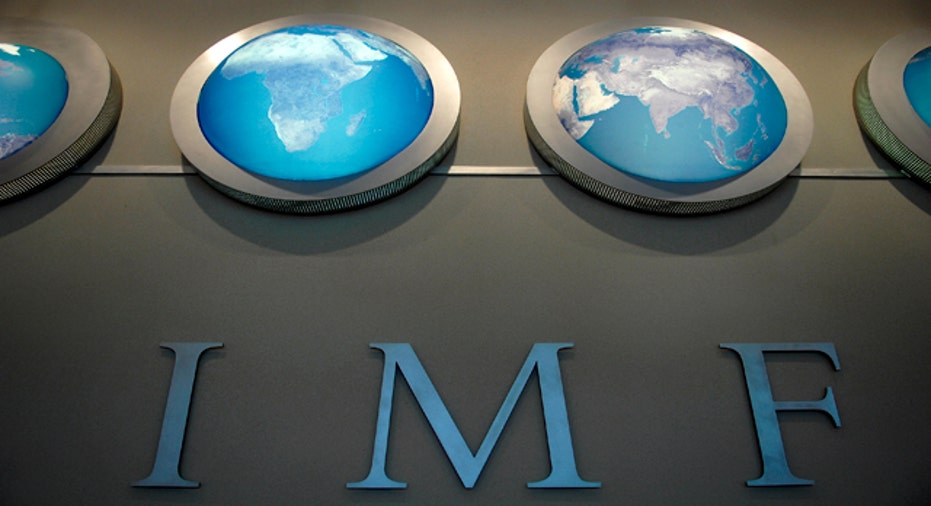IMF Upgrades U.S. Growth Forecast on Trump Stimulus Plans

U.S. President-elect Donald Trump hasn't taken office yet, but he's already reshaping the global growth outlook.
The International Monetary Fund on Monday bumped up its economic growth forecasts for the U.S., saying output could grow nearly a half-percentage point faster than previously thought over this year and next, thanks to Mr. Trump's plans to cut taxes and boost infrastructure spending.
At the same time, the IMF slashed its forecasts for Mexico by 0.6 percentage point this year to 1.7% after investors rushed out of the peso for fear the next U.S. president could curb exports to its largest trade partner. Mr. Trump's pledge to revise trade terms with Mexico, which counts on sales to the U.S. for 80% of its international exports, sent the peso plummeting and hit equities and bonds.
The IMF's move follows similar revisions by the World Bank last week.
Both institutions warned Mr. Trump's trade plans could undermine global growth if he moves ahead with vowed tariffs and other punitive actions against longtime trade partners, especially China and Mexico.
"We see a wider dispersion of risks to this short-term forecast, with those risks still tilted to the downside," Maurice Obstfeld, IMF's chief economist, said as the fund published an update to its World Economic Outlook.
Aside from Mr. Trump's surprise election and Britain's decision to leave the European Union, additional sources of uncertainty could act as a damper on investment and consumption. China's leadership is facing a major reshuffle and Europe's electorate is wrestling with a rising anti-euro faction in several upcoming elections.
IMF and World Bank economists are particularly concerned Mr. Trump could spark a trade war marked by escalating tit-for-tat tariffs. If the dollar continues to strengthen -- it is already up around 6% since August, accounting for inflation against a basket of currencies -- it could expand the U.S. trade deficit.
"This last scenario, one with a widening of global imbalances, intensifies the risk of protectionist measures and retaliatory responses, " Mr. Obstfeld said.
Widening trade deficits and sharp currency appreciations have in the past accentuated protectionist pressures, dynamics that led to a sharp fall in growth and fueled interstate conflict.
Economists are already on alert given that barriers to trade have surged in recent years while cross-border sales have slumped amid weak global demand.
While the IMF upgraded its outlook for growth in the U.S., Europe and Japan, downgrades for Mexico and most other major emerging economies offset those gains, leaving the fund's aggregated global growth outlook unchanged. It forecasts global growth will hit 3.4% this year, up from 3.1% in 2016.
Although most emerging markets don't share the same direct trade relationship to the U.S. as Mexico, Mr. Trump's election has rocked some markets. Investors pulled their capital out of Turkey, Brazil and a host of other industrializing nations in the wake of the president-elect's win last November.
Mr. Trump's vow to cut personal and corporate income taxes and promises to increase infrastructure spending raised inflation forecasts, bond yields, rate-increase expectations and strengthened the dollar. Amid a rise in uncertainty, higher borrowing costs and falling currencies jostled countries with heavy debt loads, steepening budget deficits and political turmoil, including South Africa, Venezuela, Turkey and Brazil. Nearly all have seen their growth outlooks cut.
Commodity prices have stabilized in recent months, helping many large export-reliant emerging markets. But the effects of the two-year price fall are still percolating through their economies. Russia and Brazil are only barely returning to growth this year after deep and long recessions. Nigeria, Africa's largest economy, and oil giant Saudi Arabia are also still suffering, with minimal economic expansion seen this year.
China, the world's second largest economy and a target for threatened tariffs by the incoming Trump team, is also laboring to keep growth chugging along. The IMF pushed up its outlook by 0.3 percentage point to 6.5% this year as the government used its long-worn playbook of state policies to stimulate growth. But, the fund warned, reliance on policy stimulus raises the risk of a sharper slowdown or even a nose dive in growth in the coming years.
Even India, the fastest-running large developing economy, is facing fresh headwinds after the government's plan to pull high denomination notes out of circulation sapped growth.
After painting a bleak picture for the U.K. after the electorate voted to pull out of the European Union, the IMF revised up its forecast for the isles by almost half a percentage point to 1.4%. Although uncertainty is weighing on investment, the darker downside risks forecast by the fund haven't materialized.
Write to Ian Talley at ian.talley@wsj.com



















